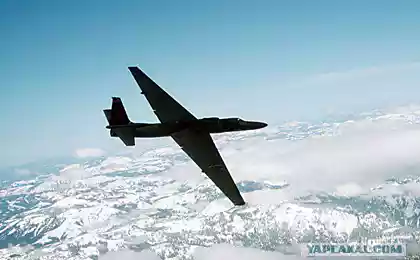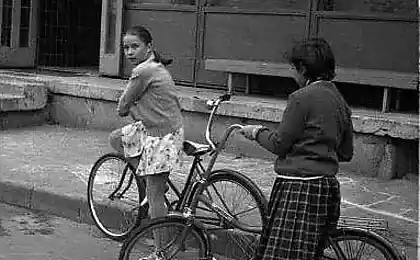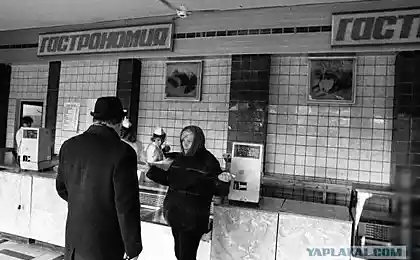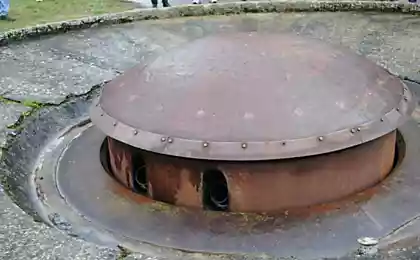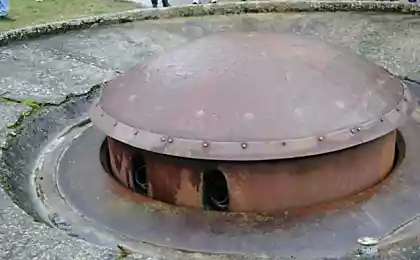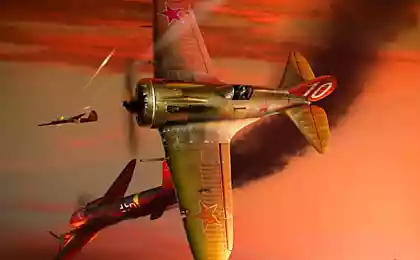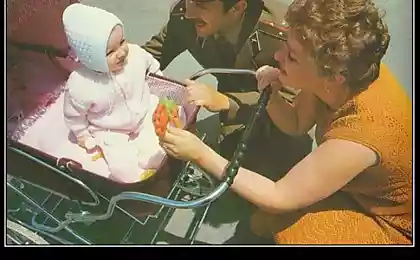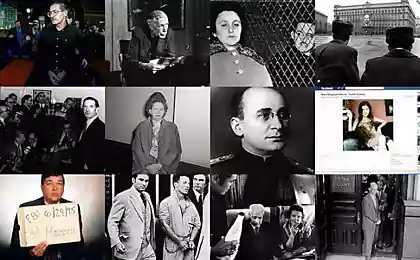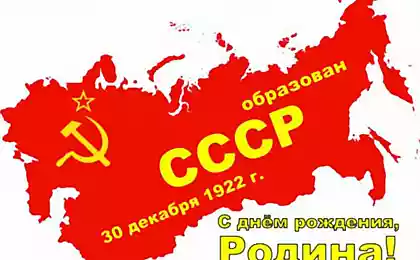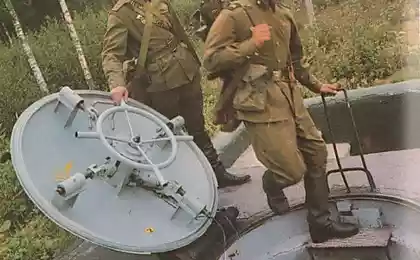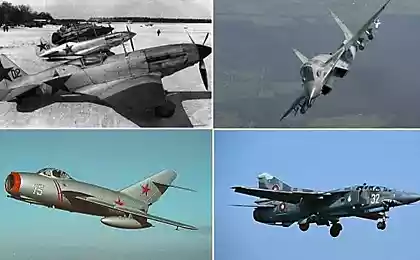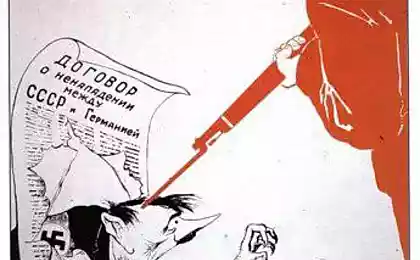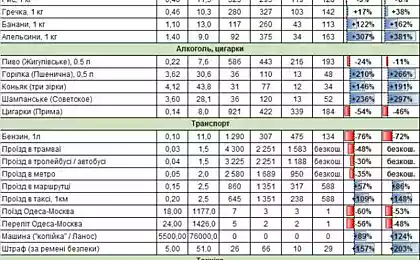4402
USSR 1953
1953 for the USSR was one of 1953 is considered one of the most serious in history, and it is clear why: March 5, died IV Stalin, who ruled ruled the country for about 30 years. After the death of the leader in the first month began a variety of changes, and all believed that it was only the beginning.
See other posts tagged Soviet Sport technical workshops at the school at Yasnaya Polyana Head of VR Glaucus and student. Valery Nekrasov, 1953:
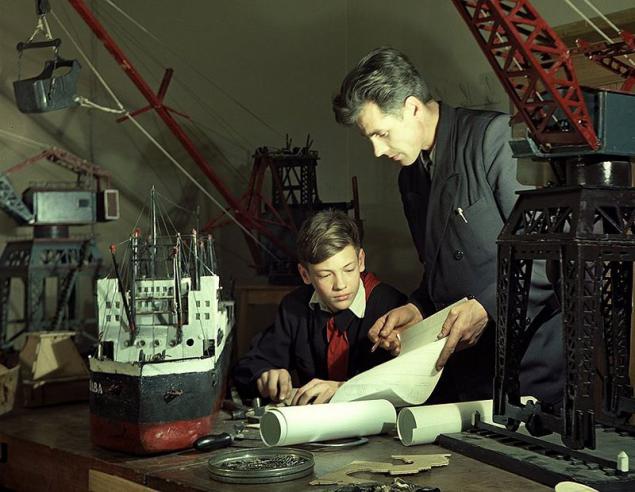
Almighty Beria's arrest in June 1953, looks more like a coup, became for many people in the Soviet Union and abroad, a significant event, as it symbolizes the end of the era of mass repressions. However, the execution of the former head of the NKVD in a completely absurd charges was, rather, the last chord of this era. Moreover, now you can often hear the opinion that Beria in 1953 was the most radical supporter and proponent of reform, which is much more moderate form will conduct the Soviet leadership. Beria speaks at a memorial meeting in March 1953 (shot from the film "The Great farewell»:
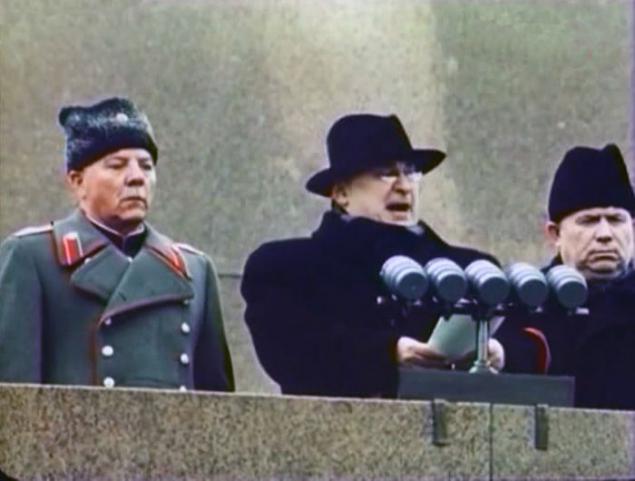
But back to the events of the beginning of the year. Stalin's funeral was shot on color of film and photography. The most famous picture Baltermantsa:
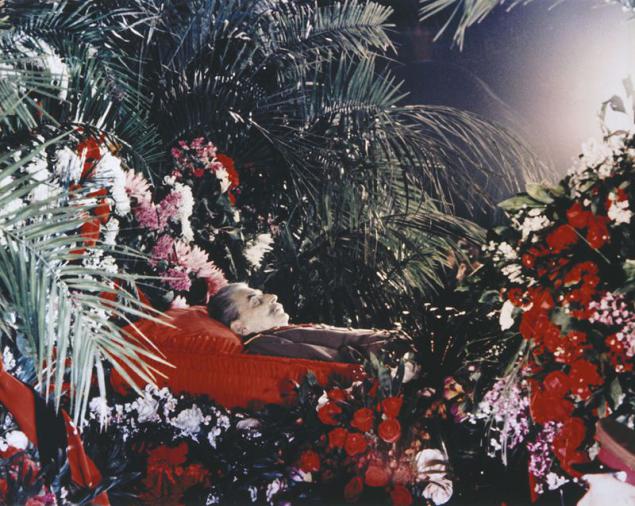
In the photo Alexander Ustinov Admiral Kuznetsov Marshal Zhukov during the funeral of the leader:
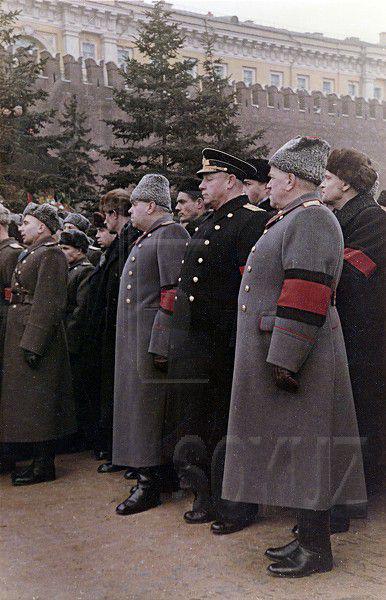
Wreaths at the monument to Stalin in Almaty, March 1953:
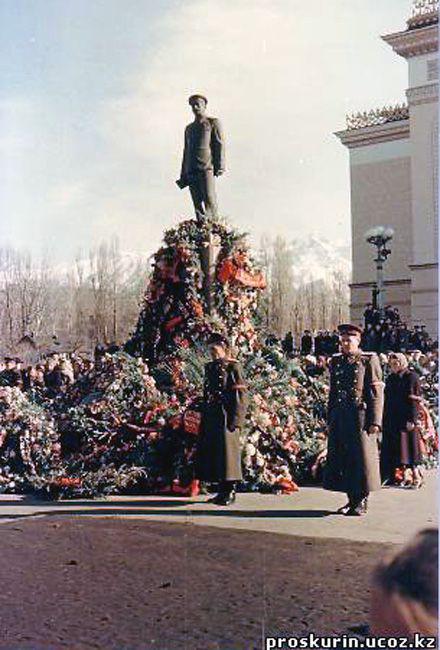
Other color images of the USSR in 1953 represent a "ceremonial" works made by Soviet photographers for magazines "Spark" and "Soviet Union" and come down to us mainly due to the reproductions in the journals. Therefore, there is no gulag workers barracks and other manifestations of the dark side of what was then the Soviet life. Only settings, scenes of peaceful labor and cultural life, cheerful face of the Soviet people. Pleasant half of the historical truth. It is best to watch pictures from the archives of "Spark" that have been scanned in our time with slides and printed in a modern printing quality. For example, a village shop in the village Hizhki Sumy region of the USSR, 1953:
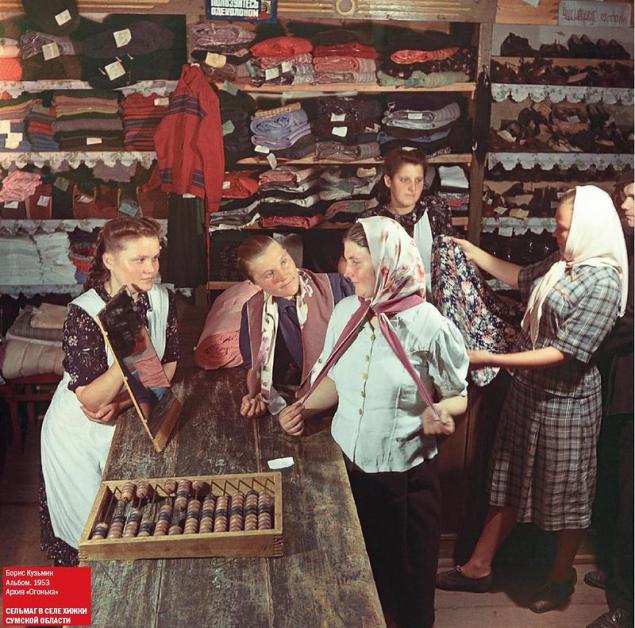
Perfume shop in Moscow, has clearly authentic printing of the magazine in 1953,
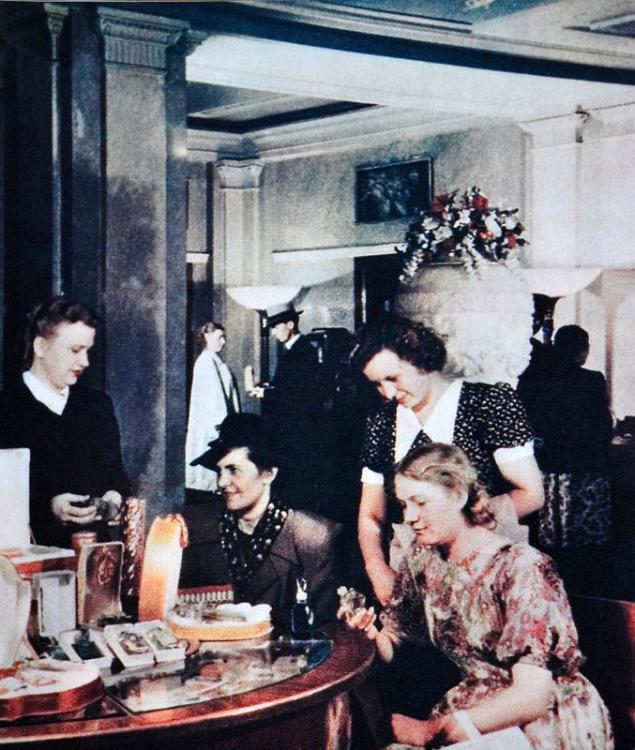
By 1953 th in the USSR is almost complete recovery of the most war-torn cities such as Minsk, Sevastopol, Stalingrad. Stalingrad. Central Volga embankment on the photo of Ivan Savin, April 53rd:
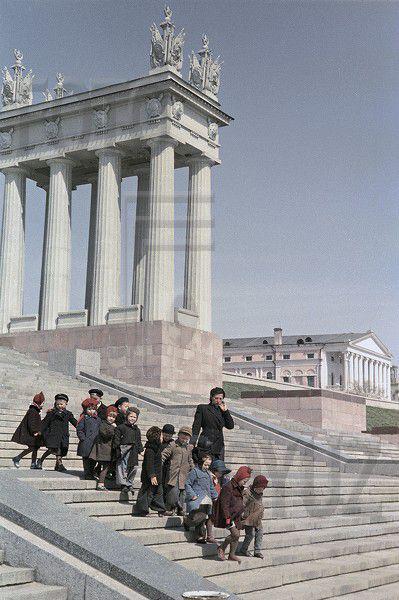
Moscow graced seven sisters-skyscrapers. In 1953, opened a new complex of buildings MSU:
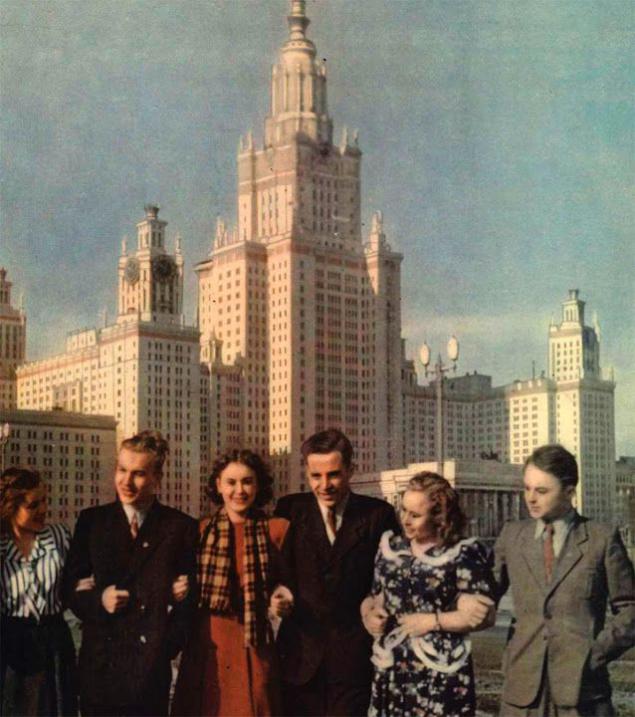
In the Stalin era were able to build beautiful and built up entire neighborhoods such cottages, but for millions of inhabitants of communal apartments, basements, and that is the beauty and dugouts remained a pipe dream. Faceless "Khrushchev" will begin in 1956 to make the dream of a more or less human habitation come true. I do not know whether it was possible to mass housing construction cottage type? It is likely that leftist fanatic Khrushchev perceived, unlike Stalin, private homes as a manifestation of bourgeois life, as well as private land holdings. "New Project" from the "Spark" 53rd:
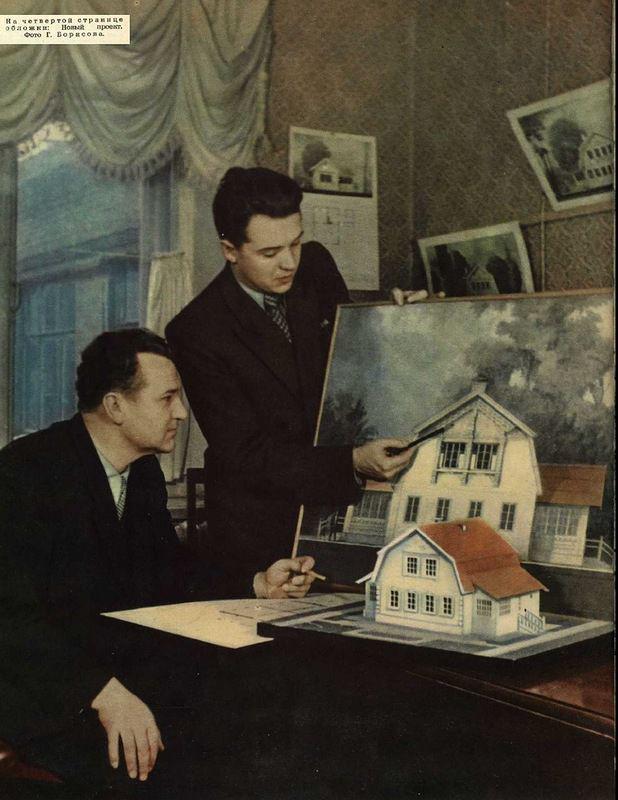
But in 1953 more reigned supreme old, Stalin's life. In the new apartment. Moscow. "Spark", 1953:
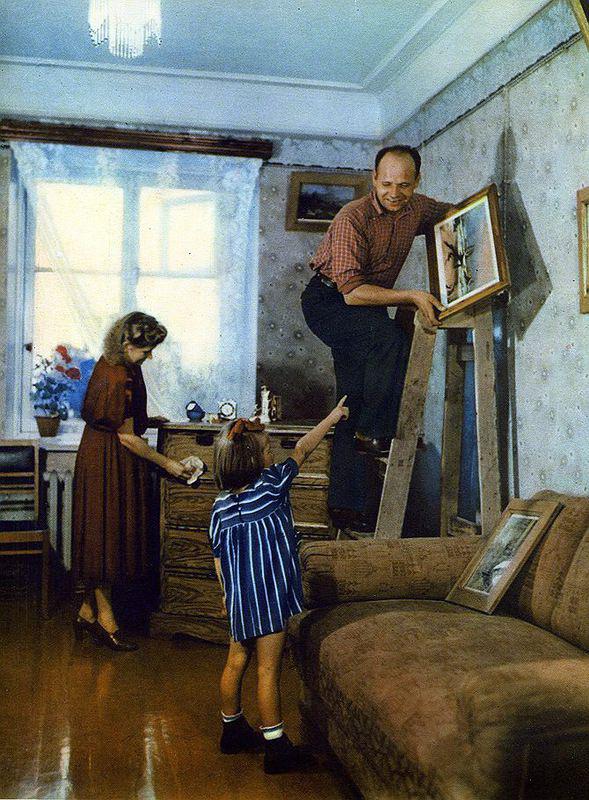
Locksmith factory "economizer" laureth Stalin Prize Ivan Kartashow, photo Seeds Friedland, "Spark", 1953:
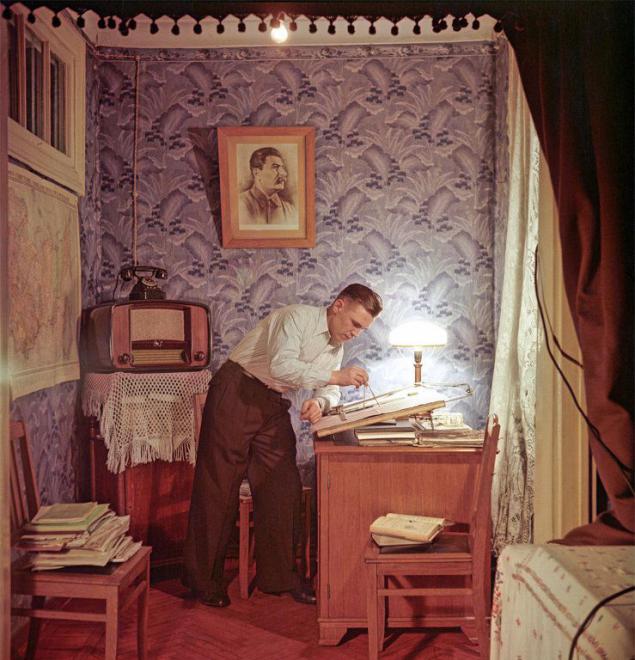
Winner of socialist competition Stakhanovite Order of Lenin s-da "Red Guard" Vlad.Iv. Kravchenko, who won in sots.sorevnovanii the honorary title of "Best toolmaker of Leningrad." Photo by S. Friedland, Archive "Spark", 1953:
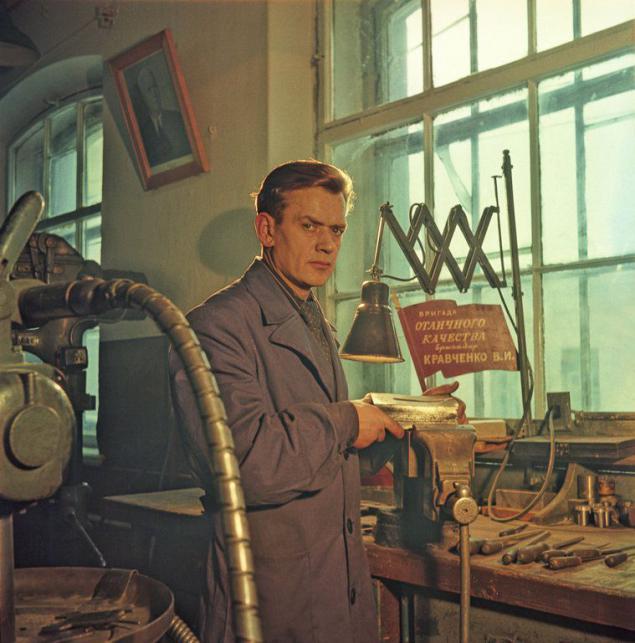
You can, of course, to think that the Soviet leadership to do everything from mobilization considerations, but because every healthy working lad (or woman) could sit at the helm of the aircraft, and then, you see, and the astronauts! "Central Aeroclub Chkalov. Pilot-athletes ", 1953:
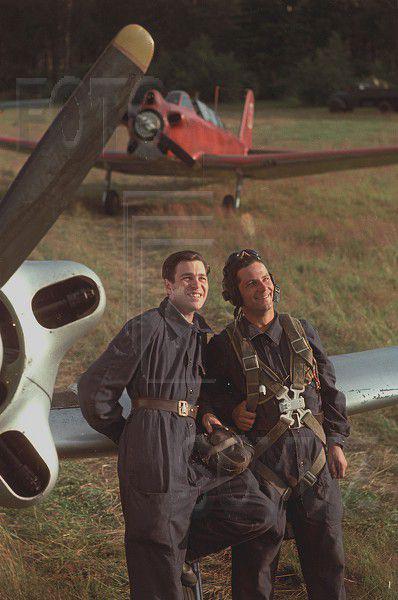
"Palace of Pioneers. The room tales. Ivanovo "photo of Mikhail Savin, January 53rd:
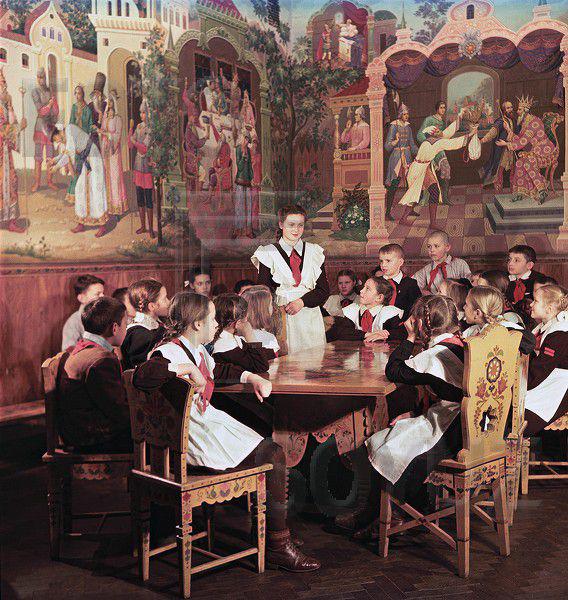
From Kiev
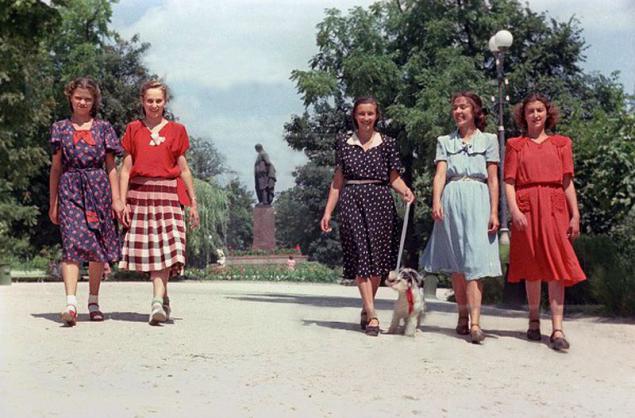
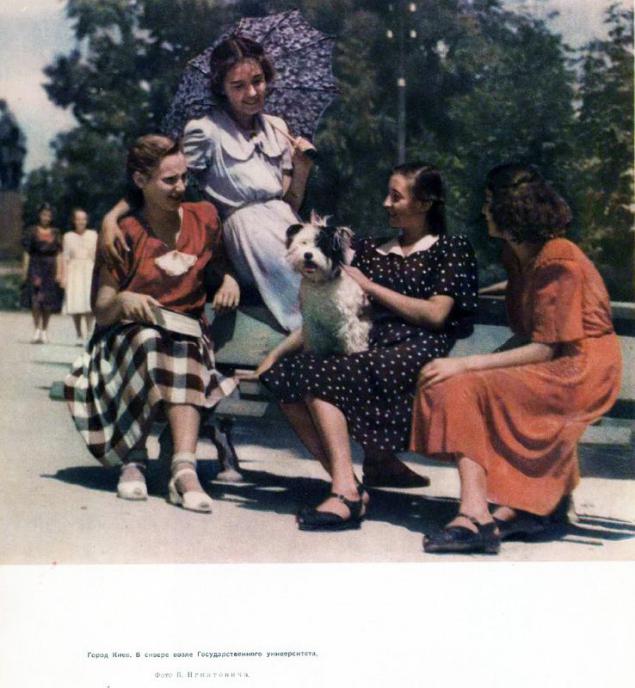
Even exhausted, bloodless wars and other miseries Soviet village in the magazine pictures appears flowering and cheerful. Milkmaid collective farm. Path to Communism. Penza Region, 1953:
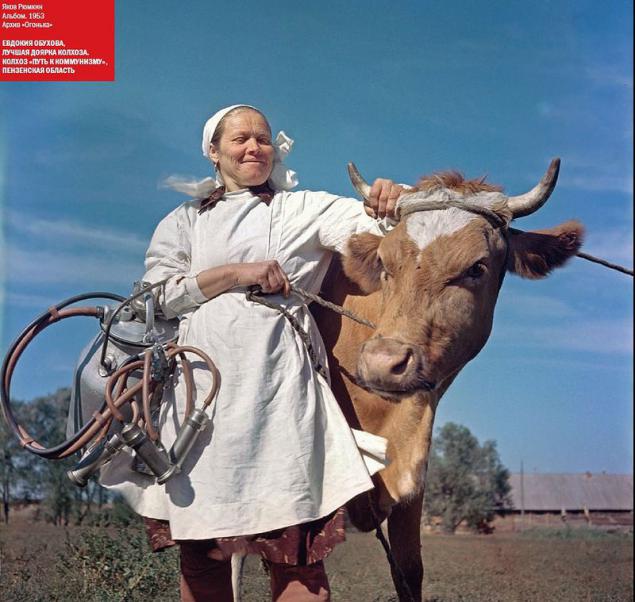
"The winners of the competition combine" 1953:
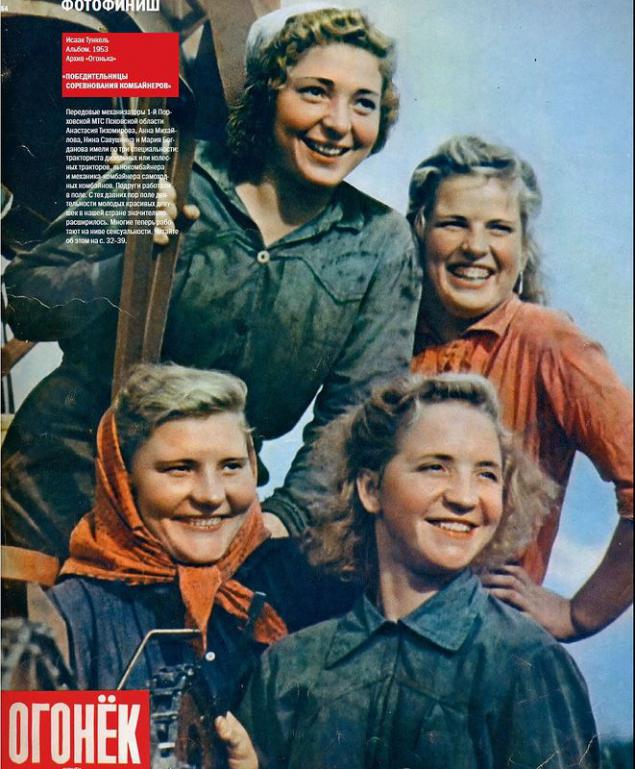
Harvesting cold summer '53:
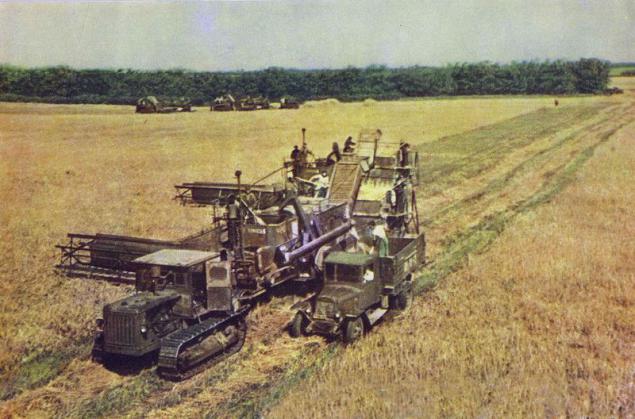
Some pictures look even suspicious, if not staged ?:
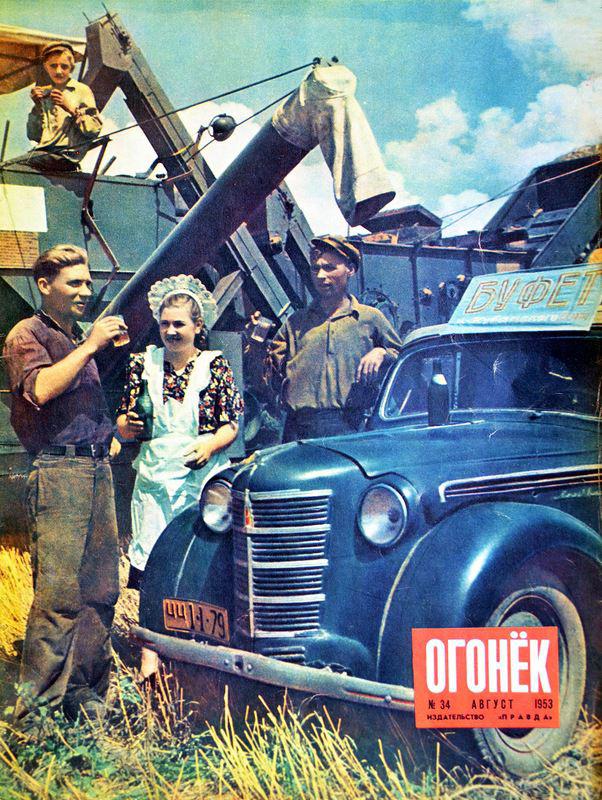
A little bit of leisure. Do not assume that the USSR 53rd were the coach (going to the lake Riza):
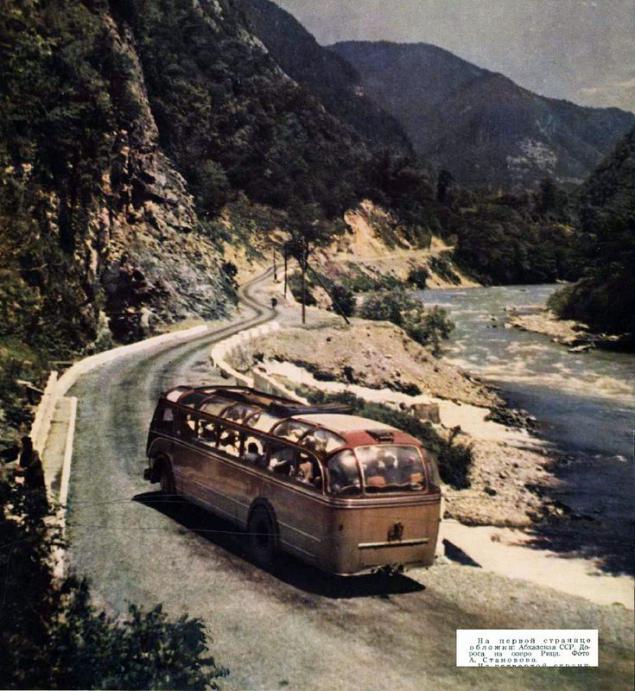
In the early 1950's color films in the Soviet Union becomes quite mundane. One of the best color films 53rd - "Admiral Ushakov", imbued with great-power patriotic ideas:
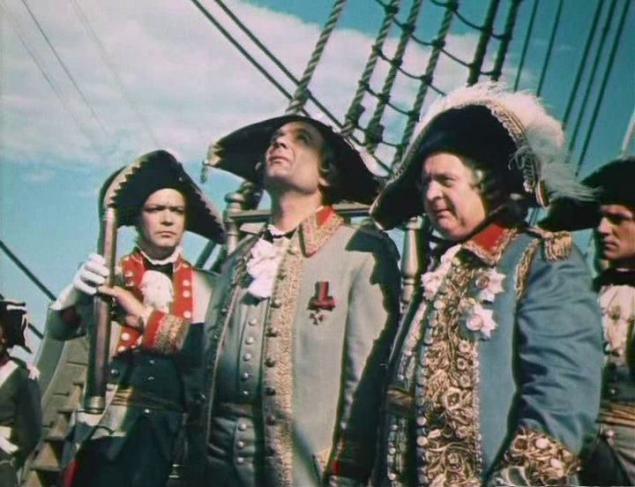
We can not forget that the 1953rd - the peak of the "cold war" (in the narrow sense of the historical term). But the first signs of the future glimmer of discharge. 27 июля 1953 armistice ended the Korean War. But anti-Soviet agitation broke out June in East Berlin. Commandant of Berlin Dibrov Peter Akimovich:
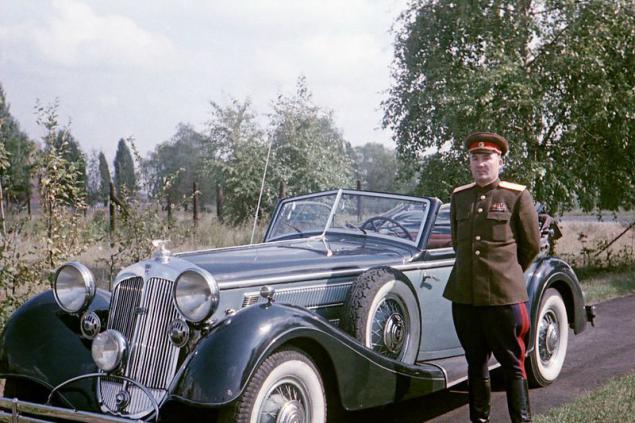
Back in 1953 at the Semipalatinsk test site experienced the first hydrogen bomb. Mushroom cloud of fire and explosion RDS-6s August 12, 1953:
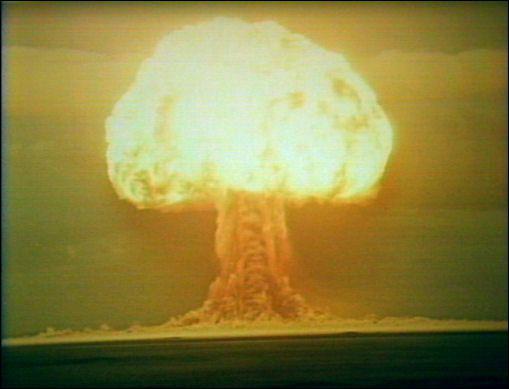
Prior to Gagarin's flight to the moon as yet, but in the USSR 53rd missiles already dreaming! Cover "Techniques of Youth" for the year:
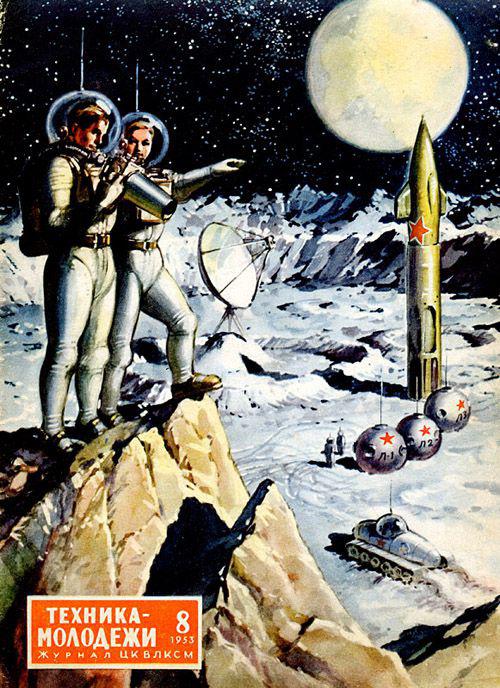
Source: visualhistory.livejournal.com
See other posts tagged Soviet Sport technical workshops at the school at Yasnaya Polyana Head of VR Glaucus and student. Valery Nekrasov, 1953:

Almighty Beria's arrest in June 1953, looks more like a coup, became for many people in the Soviet Union and abroad, a significant event, as it symbolizes the end of the era of mass repressions. However, the execution of the former head of the NKVD in a completely absurd charges was, rather, the last chord of this era. Moreover, now you can often hear the opinion that Beria in 1953 was the most radical supporter and proponent of reform, which is much more moderate form will conduct the Soviet leadership. Beria speaks at a memorial meeting in March 1953 (shot from the film "The Great farewell»:

But back to the events of the beginning of the year. Stalin's funeral was shot on color of film and photography. The most famous picture Baltermantsa:

In the photo Alexander Ustinov Admiral Kuznetsov Marshal Zhukov during the funeral of the leader:

Wreaths at the monument to Stalin in Almaty, March 1953:

Other color images of the USSR in 1953 represent a "ceremonial" works made by Soviet photographers for magazines "Spark" and "Soviet Union" and come down to us mainly due to the reproductions in the journals. Therefore, there is no gulag workers barracks and other manifestations of the dark side of what was then the Soviet life. Only settings, scenes of peaceful labor and cultural life, cheerful face of the Soviet people. Pleasant half of the historical truth. It is best to watch pictures from the archives of "Spark" that have been scanned in our time with slides and printed in a modern printing quality. For example, a village shop in the village Hizhki Sumy region of the USSR, 1953:

Perfume shop in Moscow, has clearly authentic printing of the magazine in 1953,

By 1953 th in the USSR is almost complete recovery of the most war-torn cities such as Minsk, Sevastopol, Stalingrad. Stalingrad. Central Volga embankment on the photo of Ivan Savin, April 53rd:

Moscow graced seven sisters-skyscrapers. In 1953, opened a new complex of buildings MSU:

In the Stalin era were able to build beautiful and built up entire neighborhoods such cottages, but for millions of inhabitants of communal apartments, basements, and that is the beauty and dugouts remained a pipe dream. Faceless "Khrushchev" will begin in 1956 to make the dream of a more or less human habitation come true. I do not know whether it was possible to mass housing construction cottage type? It is likely that leftist fanatic Khrushchev perceived, unlike Stalin, private homes as a manifestation of bourgeois life, as well as private land holdings. "New Project" from the "Spark" 53rd:

But in 1953 more reigned supreme old, Stalin's life. In the new apartment. Moscow. "Spark", 1953:

Locksmith factory "economizer" laureth Stalin Prize Ivan Kartashow, photo Seeds Friedland, "Spark", 1953:

Winner of socialist competition Stakhanovite Order of Lenin s-da "Red Guard" Vlad.Iv. Kravchenko, who won in sots.sorevnovanii the honorary title of "Best toolmaker of Leningrad." Photo by S. Friedland, Archive "Spark", 1953:

You can, of course, to think that the Soviet leadership to do everything from mobilization considerations, but because every healthy working lad (or woman) could sit at the helm of the aircraft, and then, you see, and the astronauts! "Central Aeroclub Chkalov. Pilot-athletes ", 1953:

"Palace of Pioneers. The room tales. Ivanovo "photo of Mikhail Savin, January 53rd:

From Kiev


Even exhausted, bloodless wars and other miseries Soviet village in the magazine pictures appears flowering and cheerful. Milkmaid collective farm. Path to Communism. Penza Region, 1953:

"The winners of the competition combine" 1953:

Harvesting cold summer '53:

Some pictures look even suspicious, if not staged ?:

A little bit of leisure. Do not assume that the USSR 53rd were the coach (going to the lake Riza):

In the early 1950's color films in the Soviet Union becomes quite mundane. One of the best color films 53rd - "Admiral Ushakov", imbued with great-power patriotic ideas:

We can not forget that the 1953rd - the peak of the "cold war" (in the narrow sense of the historical term). But the first signs of the future glimmer of discharge. 27 июля 1953 armistice ended the Korean War. But anti-Soviet agitation broke out June in East Berlin. Commandant of Berlin Dibrov Peter Akimovich:

Back in 1953 at the Semipalatinsk test site experienced the first hydrogen bomb. Mushroom cloud of fire and explosion RDS-6s August 12, 1953:

Prior to Gagarin's flight to the moon as yet, but in the USSR 53rd missiles already dreaming! Cover "Techniques of Youth" for the year:

Source: visualhistory.livejournal.com




